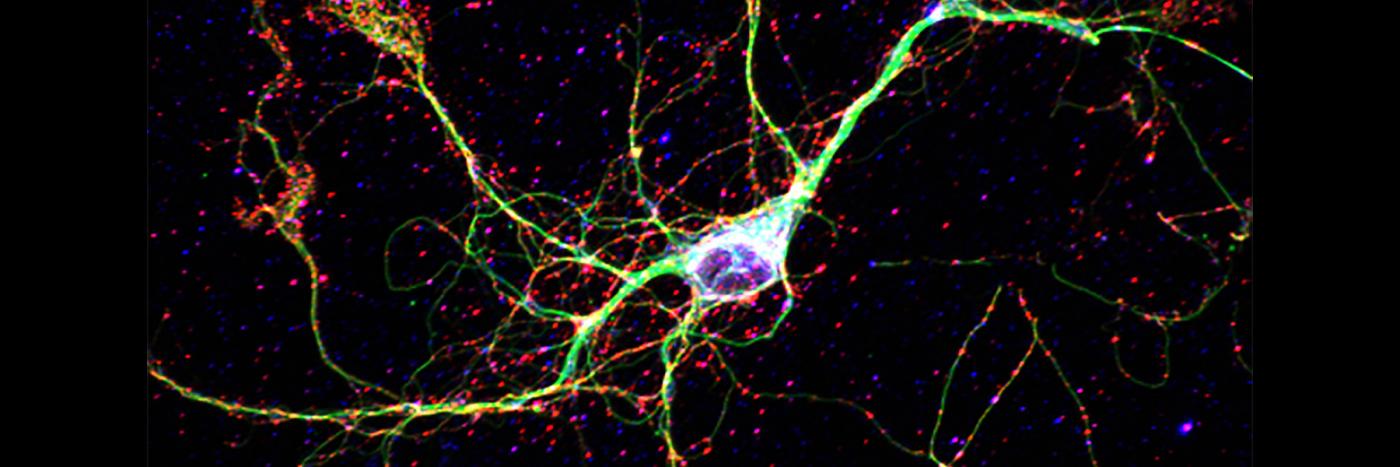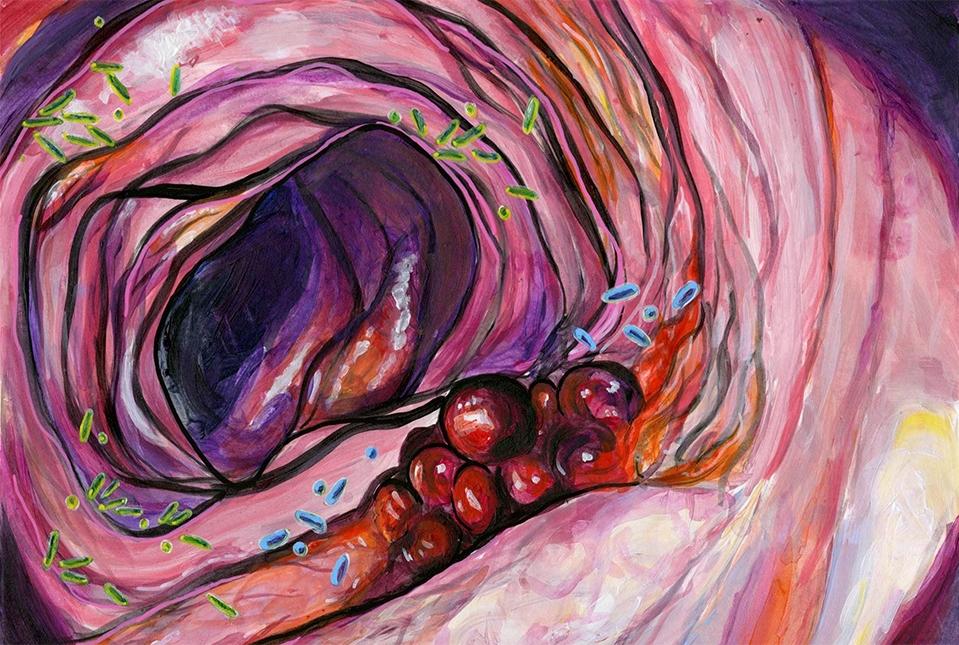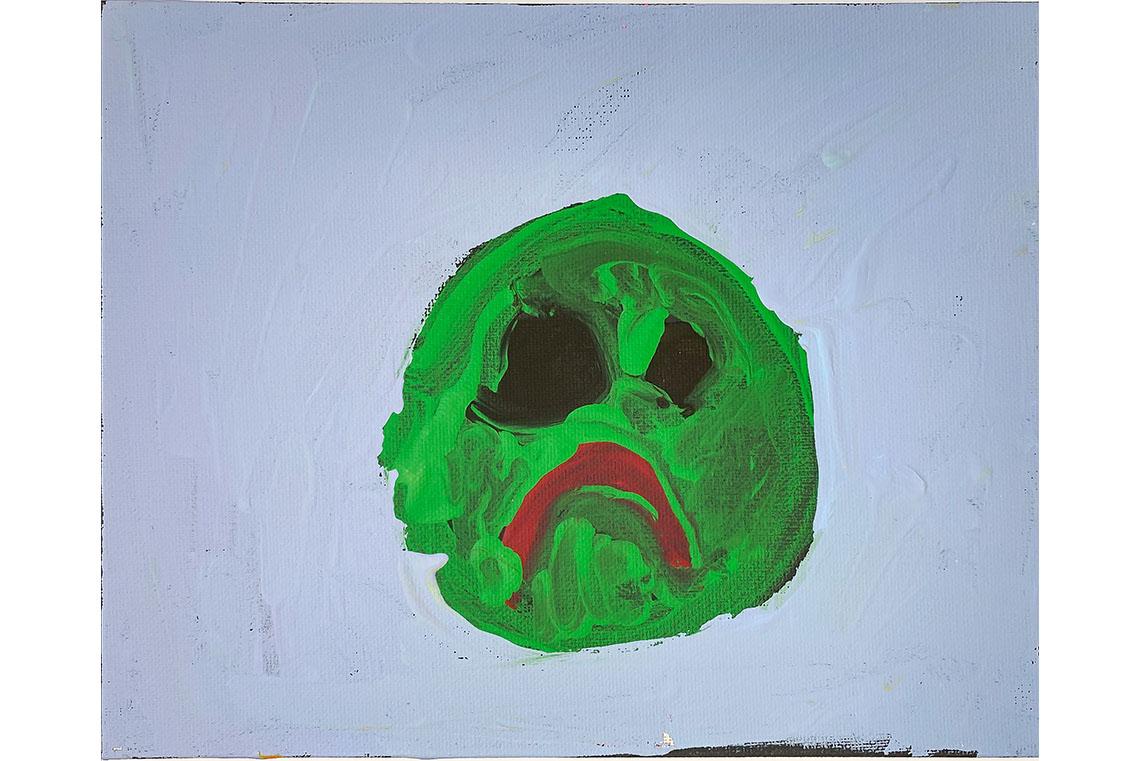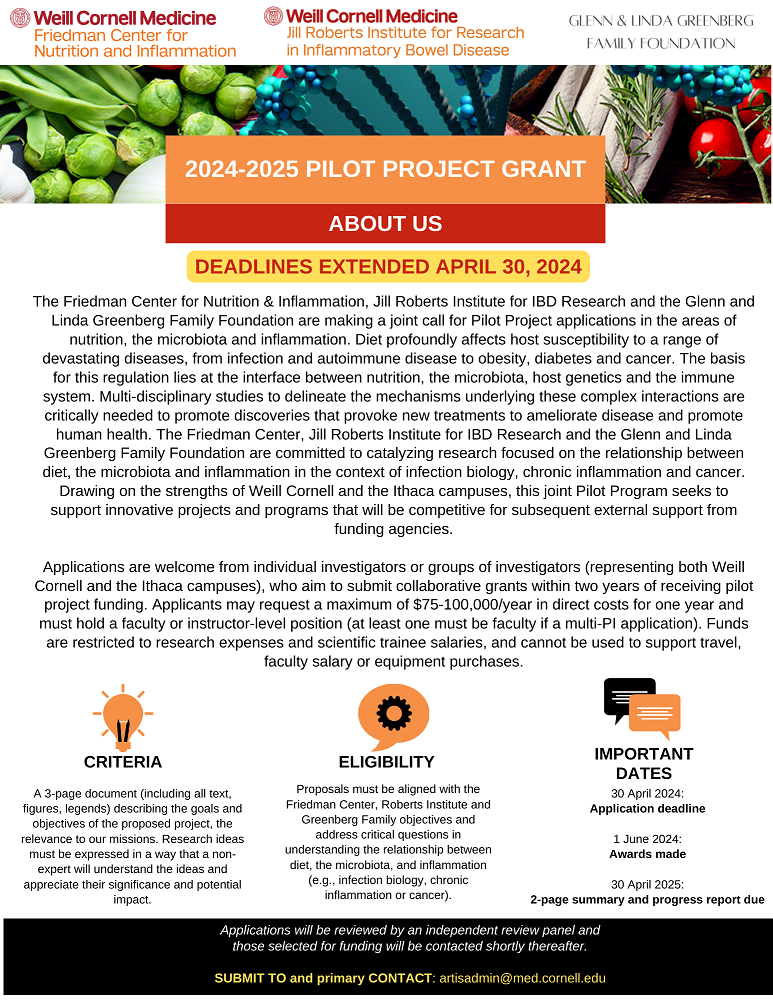We welcome you to the Jill Roberts Institute for Research in Inflammatory Bowel Disease (IBD). The mission of the Institute is to establish a multidisciplinary center of excellence that will accelerate new cutting edge scientific discoveries at both the basic and translational level, which collectively will advance innovative preventative and therapeutic approaches for IBD and other related inflammatory diseases. Our goal is to propel a paradigm shift in how we approach the research, treatment, prevention and cure of chronic inflammatory diseases by establishing interactive and successful collaborations between basic researchers, clinicians, pathologists, surgeons and bioinformaticians.
Members of the Institute are from a variety of scientific backgrounds and focus on studies that span basic discovery efforts to clinical and translational patient-based research. Already, we are making unparalleled progress in describing the molecular underpinnings of IBD, exploring how host genetics, the immune system, the microbiota and pathways that control inflammation influence the development and progression of disease. Some of our most recent research has defined how the intestinal tissue undergoes repair after daily attacks from microbes and other environmental triggers. They have revealed how the immune system learns to ignore beneficial bacteria in the gut while recognizing, eliminating and remembering foreign and harmful microbes that invade our bodies. Our investigators have also discovered that starving immune cells of key nutrients prevents them from causing inflammation and allergies. And in an ongoing clinical trial, we are investigating how fecal transplant might offer new directions in treating inflammatory diseases.
Inflammatory bowel diseases are a group of chronic inflammatory conditions of the intestine that affects more than three million people worldwide. The main forms of IBD are Crohn's disease and ulcerative colitis. Symptoms include intestinal bleeding and severe abdominal pain and discomfort. In addition, there are multiple extra-intestinal manifestations of disease in other tissues including the eyes, skin and joints. We are investigating how IBD and other inflammatory diseases are influenced by patient genetic factors, the body's immune system, beneficial microbial communities that live in the intestine, and other environmental factors.
We have established a new annual NYC IBD Research Day, new research seminars and pilot grant programs. In close collaboration with the Jill Roberts Center for Inflammatory Bowel Disease at Weill Cornell and New York-Presbyterian Hospital, led by Dr. Ellen Scherl, the Jill Roberts Professor of Inflammatory Bowel Disease and professor of clinical medicine at Weill Cornell, we have already established a new IBD Live Cell Bank and employ patient-oriented basic research and clinical trials to investigate the factors that influence the development of IBD in children and adults. Coupled with model systems to accelerate basic discovery efforts, we hope to develop innovative translational treatments and cures for IBD and other inflammatory diseases.














































